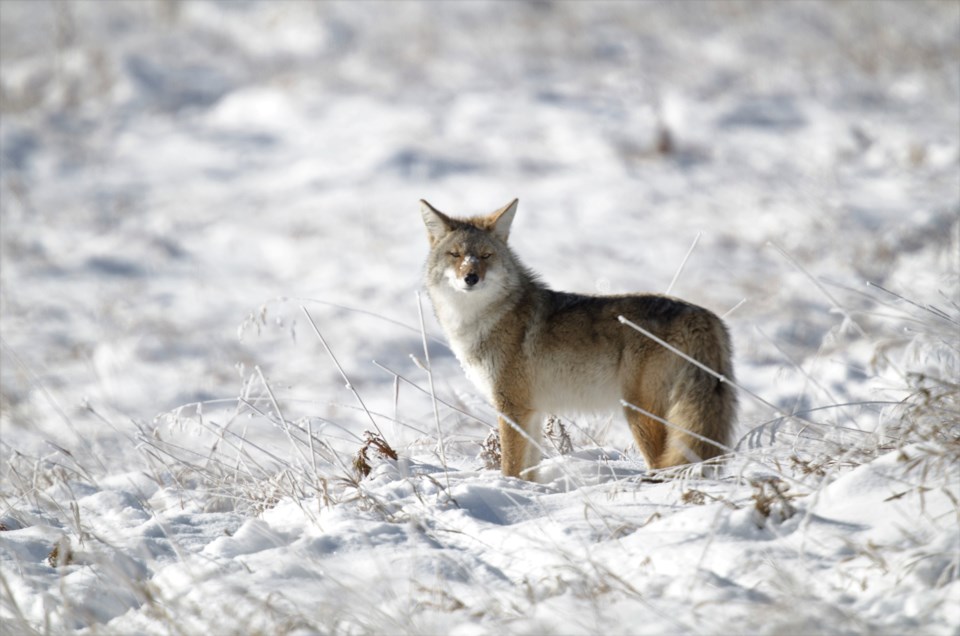During this pandemic, many Canadians have reported seeing and hearing more wildlife in their neighbourhoods. The Nature Conservancy of Canada (NCC) says coyotes in residential areas have received heightened awareness in recent weeks.
NCC’s senior conservation biologist Dan Kraus says we are spotting and hearing these animals because we are spending more time around home and in local parks during COVID-19. During busier times when we are constantly on the move, many of us tend to be hurrying to get somewhere and fail to notice that wildlife is all around us.
Kraus says it is a good sign that people are becoming more aware of wildlife and their annual life cycles. Coyotes are generally more active during their mating season in the winter. Spring is when they are searching for dens to rear their pups, but seeing coyotes this time of year is not uncommon. Coyotes, as with all wildlife, should only be watched from a distance and never approached. While coyotes are generally shy and would prefer to avoid confrontations with humans, they can become habituated to people and become aggressive.
“Early spring is when coyotes are very actively looking for food. They play an important role in the urban ecosystem by controlling rodent populations and eating carrion. It’s an amazing experience to watch a coyote sitting patiently in a meadow or park and then pouncing to capture mice and voles. But unfortunately coyotes that are injured, starving, young or have been fed by people can come into conflict with people,” said Kraus.
“Wildlife is making a comeback in many of our cities. Coyotes are an incredible species that, despite past efforts to eradicate them, have actually expanded their range and even adapted to live in the downtown cores of our cities. They offer a unique opportunity to experience nature where we live. But we need to remember that real nature is not a Disney film; these are wild animals and need to be treated with respect so we can peacefully co-exist,“ he added.
Kraus offers the following tips to people to keep themselves, and their pets, safe:
· Feed your pets inside and keep them indoors. Do not leave pets unattended or unprotected outdoors. Keep dogs on a leash when going for walks.
· Make sure garbage, pet food or compost is not left outside. Keep garbage containers sealed and locked. Close off spaces under porches, decks and sheds to prevent wildlife from seeking shelter or dens.
During this Easter long weekend, people are eager to get outdoors into the forests and onto some trails. Kraus has good information for people who encounter a coyote or any wildlife:
· Do not approach, do not try to feed, touch, or to photograph the animal from close distances.
· If you encounter a coyote and it does not flee, remain calm and slowly back away and leave the area in the direction where you came from. Never run from a coyote, or any wildlife, as it may trigger a predatory response and give chase.
· Use personal alarm devices — such as a whistle, bell or phone — to frighten or threaten the animal.
· If the animal exhibits aggressive behaviour, then make yourself larger and noisier by raising your arms and voice.
· If, in the rare case, the animal continues to approach, throw rocks or sticks in its direction.
Landowners unable to deal with coyotes that repeatedly show signs of aggression or habituation should contact the police or their local Natural Resources Department.
About
The Nature Conservancy of Canada (NCC) is the nation’s leading not-for-profit, private land conservation organization, working to protect our most important natural areas and the species they sustain. Since 1962, NCC and its partners have helped to protect 14 million hectares (35 million acres), coast to coast to coast. To learn more, visit natureconservancy.ca.




